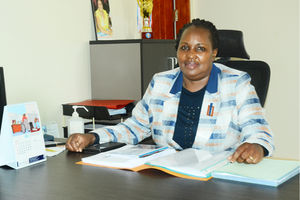
Brighton Abaho
On June 16 each year, the world commemorates the Day of the African Child, a day that underscores the importance of child rights across the African continent.
In Uganda, this day should resonate deeply, urging a collective effort to improve the country’s education system and ensure that every child, regardless of their background, has access to quality education.
Whereas Uganda has made significant strides in education over the past few years, the country still grapples with numerous obstacles that hinder the provision of comprehensive, equitable and quality education for all.
Despite increased enrollment, the quality of education remains a major concern, especially in most government-aided schools. Overcrowded classrooms, lack of teaching materials, and dilapidated structures remain a major concern across the country and continue to compromise the learning experience. Many schools, especially in rural areas, lack basic infrastructure such as electricity, clean water, and sanitation facilities.
As part of the 2030 Agenda for Sustainable Development, governments made a commitment at the 2015 World Education Forum in Incheon, Republic of Korea to allocate 4 to 6 percent of Gross Domestic Product (GDP) to education and/or to allocate at least 15 to 20 percent of public expenditures to education. The 2021 Paris Declaration on Education Financing reaffirmed these international benchmarks.
In 2004, Uganda spent over 20 percent of its national budget on education. Since then, however, its investments in education have declined significantly. Uganda’s education budget for 2023/24—Shs 4,447 billion—accounted for only 8.4 percent of the total national budget, significantly below the international benchmark of 15 to 20 percent. Its neighbours, Kenya and Tanzania, both allocate more than 18 percent of their national budgets to education.
We can’t talk about education without paying attention to pre-primary education which has seemingly been neglected by government funding. It should be noted that investment in pre-primary education would be a powerful investment to achieve quality education for all.
A 2023 cost-benefit analysis of pre-primary education in Uganda found that every one Ugandan shilling invested in pre-primary education could yield up to Shs16 in social and economic benefits, including reduced primary school repetition rates, improved lifetime earnings, new employment opportunities, and gains from freeing up the time of primary caregivers. The study concluded that investments in early childhood have the greatest rate of return of any human capital intervention.
Children with disabilities and those from marginalised communities face additional barriers to education. Despite the presence of inclusive policies on paper, facilities and learning aids remain a challenge for most of the children with special needs meaning that many are left behind, especially those in rural areas. This calls for reflection and action which means that there is an urgent need to address the systemic issues that plague the education system.
Enhancing the quality of education starts with the educators. There should be a concerted effort to improve teacher training programmes, offer continuous professional development, and provide better working conditions, especially accommodation facilities for teachers in government-aided schools.
The government needs to implement robust policies that promote access to education at all levels. This includes increasing funding for secondary and tertiary education, providing scholarships and financial aid to underprivileged students, and enforcing laws that prevent child marriages and labour. Engaging communities and parents in the education process is crucial. Awareness campaigns highlighting the importance of education and the detrimental effects of dropping out can help shift cultural attitudes and practices that hinder educational attainment.
Ensuring that children with disabilities and those from marginalised communities have equal access to education requires targeted interventions. This could involve specialised training for teachers, adaptive learning materials, and the creation of inclusive learning environments. By improving the education system, ensuring it is inclusive and accessible, and addressing the deep-rooted challenges that persist, Uganda can pave the way for a brighter, more equitable future for all its children. Let us commit to taking tangible steps that will make quality education a reality for every child in Uganda.
Mr Brighton Abaho is lawyer and public policy analyst.




